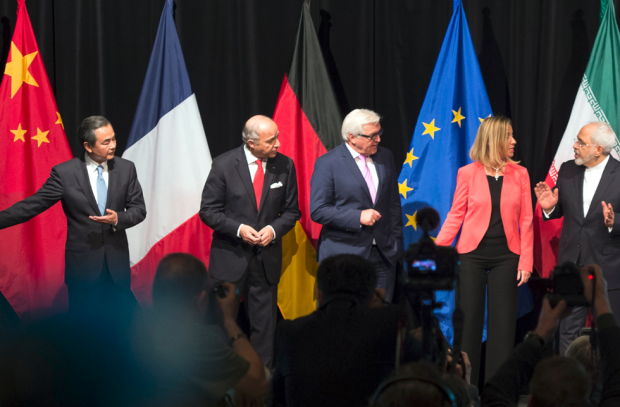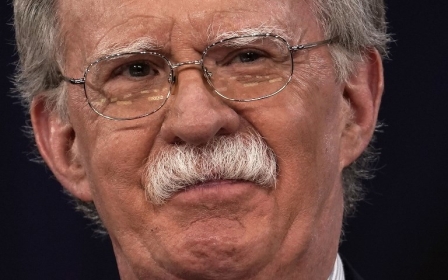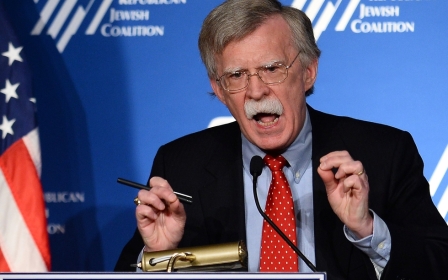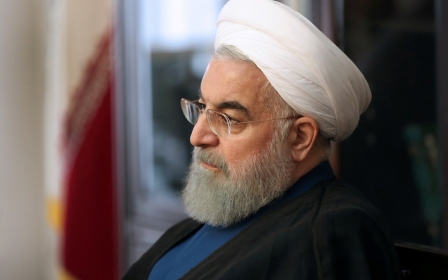Trump and Tehran: This is not 2003 and Iran is not Iraq
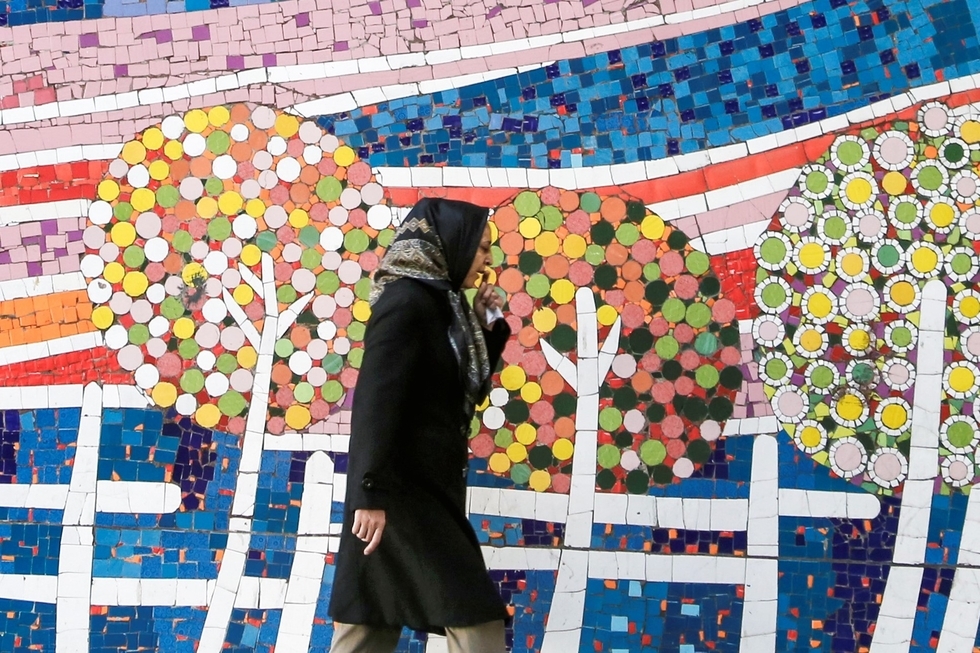
Narrative-building is an art and former US President Barack Obama was a master charmer. Hence, maintaining the image of the United States as the exceptional and indispensable nation that promotes freedom and equality, particularly after eight long years of George W Bush (since rehabilitated by the liberal media), was not the most challenging of labours.
The Western corporate media - and state-owned outlets - had the somewhat undemanding task of "Making America Feel Good Again". No more Bushisms, Dick Cheneys, Abu Ghraibs, John Boltons, CIA black sites, Princes of Darkness, extraordinary renditions, fake dossiers, and Guantanamo Bays, among other things.
This was the post-racial America, where black lives mattered and where the president received a Nobel peace prize - like Yitzhak Rabin, FW de Klerk, Jimmy Carter, Al Gore, Aung San Suu Kyi, Shimon Peres, and other "luminaries" - even though he had barely entered the Oval Office.
The Obama era
True, Guantanamo Bay remained open for business, drone strikes were all the rage, Libya was shattered, Obama funded "moderates" in Syria (which Biden said were non-existent), "managed" the Islamic State (IS) advance on Damascus, helped Saudi Arabia starve out Yemen, facilitated the siege on Gaza, imposed "crippling" sanctions on ordinary Iranians, and justified the Saudi occupation of Bahrain, among other reprehensible deeds.
Yet somehow, Obama was TV gold. He was great with teleprompters, seduced talk show audiences nationwide, did an awesome mic drop, and even agreed to a nuclear deal with Iran. He was like Teflon Tony before Tony lost his Teflon.
The extensive violations of the JCPOA has left most of the sanctions regime intact, thus limiting Iran's losses subsequent to a potential US withdrawal from the agreement
For many it was the same old America, but under Obama, US soft power reached new heights. Coalition building was no longer the coalition of the willing. The European Union conformed to his will, while a rising China and re-emerging Russia worked to avoid any serious confrontation.
Capitalising on unfounded allegations of electoral fraud in 2009, Obama stealthily enhanced Iranophobia, securitised Iran, and manufactured a sense of crisis and urgency - despite Iran's adherence to International Atomic Energy Agency regulations. Life was not easy for Iranian strategists and foreign policymakers, as sanctions continued to stack up on an unprepared Iranian public.
Seismic shifts
Then came Trump, who aligned himself with Saudi Crown Prince Mohammad bin Salman and Israel's Prime Minister Benjamin Netanyahu – a veritable Three Stooges in the world of Mideast geopolitics. One was an unsavoury prime minister who enforces apartheid, is disliked by allies and faces corruption charges at home.
The other was heralded as a true reformer – albeit one who kidnaps Lebanese prime ministers, supports coups, imposes sieges on old allies, starves children, funds Wahhabi extremists, arrests and tortures family members, and spends billions on yachts, portraits, foreign castles and chateaus.
At times, even Trump-skeptical Iranian diplomats must have secretly felt overwhelmed by the abundance of gifts the US president was presenting to them.
While from the get-go Obama, the Treasury Department and the US Congress repeatedly violated the terms of the JCPOA, the former president's constant public and verbal commitment to the JCPOA lulled much of the international community and drowned out Iranian protests that their commitments had not been reciprocated.
Trump has reinforced the widespread belief that the United States is growing more extreme and irrational and becoming increasingly antagonistic toward the rest of the world
Almost immediately after his inauguration, Trump ramped up the violations - and began threatening to exit the nuclear agreement altogether.
Suddenly the tables were turned, as even close US allies felt belittled and insulted that, by ignoring US international commitments, Trump was also exposing Germany, Britain, and France as geopolitical lightweights who have little impact on major international agreements.
Russia and China increasingly viewed the United States as an unreliable partner, thus accelerating their strategic interest in their relationship with the Islamic Republic. Unreliability and unpredictability, combined with a host of new tariffs, sanctions, dubious alliances and military threats, are creating seismic shifts that push Washington toward deeper isolation.
Extreme and irrational
In the absence of Saruman's or King Salman's orb, it is unwise to make predictions of the future. However, it seems clear that by firing Secretary of State Tillerson and installing John Bolton as national security advisor, Trump has reinforced the widespread belief that the United States is growing more extreme and irrational and becoming increasingly antagonistic toward the rest of the world.
The spectacle of domestic US political strife combined with the emergence of Trump's fanatical foreign policy team has demolished US soft power capabilities and made the United States under George W Bush look utopian.
Nevertheless, the US government must realise that Iran is not Iraq and this is not 2003. Iran's strategic alliances are extensive and deep, and US regional allies today look increasingly fragile and erratic.
Moreover, Iran's interests increasingly converge with global powers such as Russia and China, while the appointment of Bolton alarms even America's staunchest allies. The extensive violations of the JCPOA has left most of the sanctions regime intact, thus limiting Iran's losses subsequent to a potential US withdrawal from the agreement.
At home and abroad, Iran's leaders will be vindicated for their skepticism of US intentions, and the Iranian public will expect an immediate normalisation of its peaceful nuclear programme.
Despite his well-founded skepticism, Ayatollah Khamenei once stated that if the US changes its behaviour regarding the nuclear dossier, the two sides may be able to negotiate over other matters as well.
When the US cannot be trusted over existing agreements, further negotiations are simply a fool's quest.
Samuel Johnson once said: "A man who exposes himself when he is intoxicated, has not the art of getting drunk." The emperor has no clothes and has revealed himself to be clueless about the Art of the Deal.
- Seyed Mohammad Marandi is a Professor of English Literature and Orientalism at the University of Tehran
The views expressed in this article belong to the author and do not necessarily reflect the editorial policy of Middle East Eye.
Photo: An Iranian woman walks along a street past a mosaic mural, on the first anniversary of the nuclear agreement, in the capital Tehran on 14 Jaunary, 2017 (AFP).
This article is available in French on Middle East Eye French edition.
New MEE newsletter: Jerusalem Dispatch
Sign up to get the latest insights and analysis on Israel-Palestine, alongside Turkey Unpacked and other MEE newsletters
Middle East Eye delivers independent and unrivalled coverage and analysis of the Middle East, North Africa and beyond. To learn more about republishing this content and the associated fees, please fill out this form. More about MEE can be found here.



